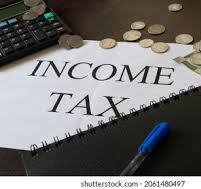Judicial Relief Granted in Tax Dispute: A Case Analysis
03 Feb, 2024
4410 View
Introduction:
- In a recent writ petition filed under Articles 226 and 227 of the Constitution of India, a petitioner sought multiple reliefs challenging demands raised by the income tax authorities. The core issue revolved around the petitioner's liability for outstanding tax and interest amounts related to Assessment Years 2009-10, 2011-12, and 2012-13. The petitioner, a former employee of Kingfisher Airlines Limited, contended that despite the tax being deducted at source (TDS) by the employer, the demands were erroneously raised against them.
Factual Background:
- The petitioner, employed as an airline pilot with Kingfisher Airlines Limited since April 16, 2008, faced challenges related to TDS and subsequent tax demands. The employer had deducted TDS from the petitioner's salary but failed to deposit it with the revenue authorities. The petitioner consistently filed income tax returns, claiming TDS credits, leading to demands for tax and interest, which were contested by the petitioner.
Chronology of Events:
- For AY 2009-10, the petitioner's TDS credit claim was denied, resulting in a demand of Rs. 15,36,020/-
- Similar disputes arose for AYs 2011-12 and 2012-13, with demands of Rs. 19,15,807/- and Rs. 18,16,870/-, respectively.
- Rectification applications and repeated communications by the petitioner did not resolve the issues.
- The employer, Kingfisher Airlines Limited, faced winding-up proceedings on November 18, 2016.
Legal Analysis:
- The primary contention was whether the income tax authorities could recover outstanding tax demands from the petitioner when the TDS, though deducted, was not deposited by the employer. The court relied on the judgment in the case of Sanjay Sudan vs Assistant Commissioner of Income Tax, emphasizing Section 205 of the Income Tax Act.
- Section 205 stipulates that where tax is deductible at the source, the assessee shall not be required to pay the tax directly, to the extent of the deducted amount. The court highlighted an instruction dated June 1, 2015, aligning with Section 205, which bars coercive recovery from the assessee in such cases.
Court's Decision and Rationale:
- The court held that the petitioner cannot be compelled to pay tax that has been deducted at source but not deposited by the employer. The court rejected the revenue's argument that credit for withholding tax can only be given when the amount is received in the Central Government account.
- The judgment emphasized that indirect recovery of tax through adjustments against future refunds is also impermissible under Section 205. The court concluded that neither the demand for tax deducted nor its adjustment against future refunds can be enforced coercively.
Conclusion:
- The court granted relief to the petitioner, setting aside the demands and intimations for AYs 2009-10, 2011-12, and 2012-13. It restrained the income tax authorities from pursuing recovery proceedings related to these demands and directed the refund of Rs. 3,88,209/-, wrongly adjusted by the authorities. The judgment reinforces the protection provided to the assessee under Section 205 and ensures that coercive measures are not taken for demands related to TDS.
Topic- Chintan Bindra Versus Deputy Commissioner of Income Tax
Court-Delhi High Court
Date29/11/2023
Team Taxonation

Comment: